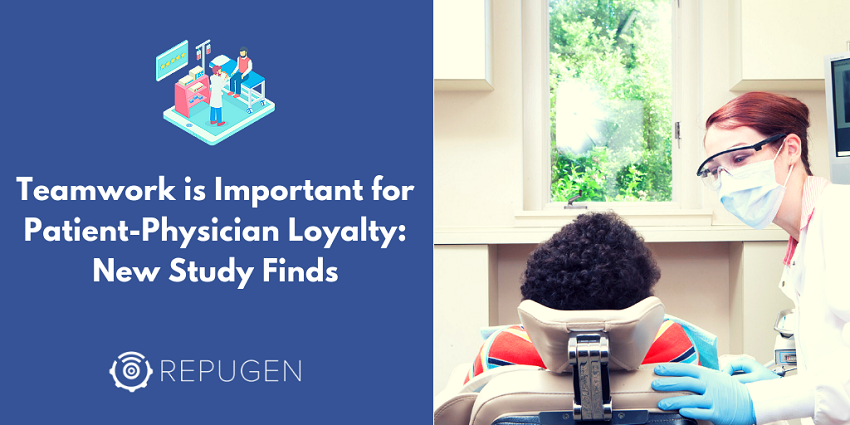
The lifetime health spending of a patient is about $1.4 million per individual or $4.2 million per family. Therefore, it’s important to retain patient loyalty so that this spending stays with your practice.
A new report by Press Ganey reveals key and practical secrets to drive patient loyalty. Press Ganey’s White Paper shows how patient and physician loyalty is interdependent and explains how healthcare practices can improve in areas that impact their organizational performance.
The report outlined the following insights into the patient-physician relationship and pinpointed the top drivers of patient loyalty:
Teamwork is the strongest influencer and predictor of in-house patient loyalty. Once patients visit your practice, teamwork becomes important for creating a healthy relationship. This may come as a surprise, but teamwork and collaboration can often be a great indicator of the quality of treatment patients receive at your practice.
Great teamwork is essential for patients’ safety and to help achieve the best possible outcome. Moreover, its importance is increasing due to issues such as comorbidities and the growing importance of specialized care. Teamwork within your practice can create the type of environment that fosters loyalty from staff members. Hence, teamwork is a win-win situation for both healthcare providers and patients.
During emergency care, patient loyalty is driven by the care provided by the physicians and their staff members. This seems fairly straightforward. After all, patients desire compassion during their most difficult times of need. However, the solution to creating a genuine and caring healthcare facility may not be so straightforward.
While social skills training and a genuine smile can go a long way, these things are often difficult to achieve without a positive approach from caretakers themselves. Healthcare organizations should also consider implementing new digital technologies to help physicians provide optimal quality care. Digital integration can be an important step towards improving the patient experience.
Feeling respected by the caregivers, being treated professionally by healthcare providers, observing caregiver responsiveness to questions and concerns are strong predictors of patient loyalty.
According to the study, patients feel most engaged and involved when they are treated with respect by medical practitioners. Patients also reported courteous behavior by nurses and other staff members as an important part of their experience. Patients feel valued when their physicians are concerned about their health and have answered all of their questions.
Patient experience and physician engagement are directly related to each other. Optimizing this relationship is essential to transformational change needed for healthcare practices to thrive in today’s value-based marketplace.
0 Comment
Your email address will not be published. Required fields are marked *